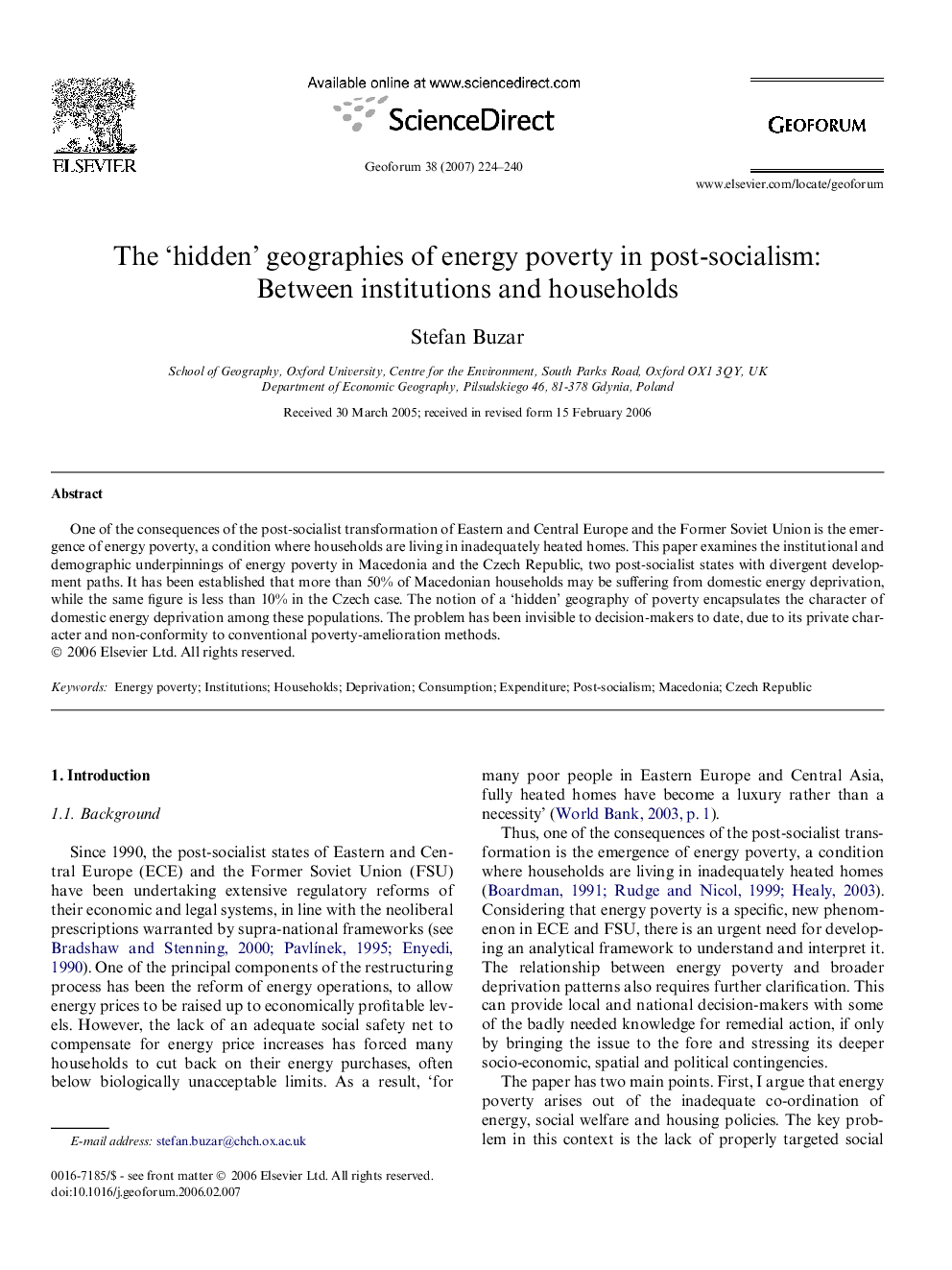| Article ID | Journal | Published Year | Pages | File Type |
|---|---|---|---|---|
| 5075085 | Geoforum | 2007 | 17 Pages |
Abstract
One of the consequences of the post-socialist transformation of Eastern and Central Europe and the Former Soviet Union is the emergence of energy poverty, a condition where households are living in inadequately heated homes. This paper examines the institutional and demographic underpinnings of energy poverty in Macedonia and the Czech Republic, two post-socialist states with divergent development paths. It has been established that more than 50% of Macedonian households may be suffering from domestic energy deprivation, while the same figure is less than 10% in the Czech case. The notion of a 'hidden' geography of poverty encapsulates the character of domestic energy deprivation among these populations. The problem has been invisible to decision-makers to date, due to its private character and non-conformity to conventional poverty-amelioration methods.
Keywords
Related Topics
Social Sciences and Humanities
Economics, Econometrics and Finance
Economics and Econometrics
Authors
Stefan Buzar,
